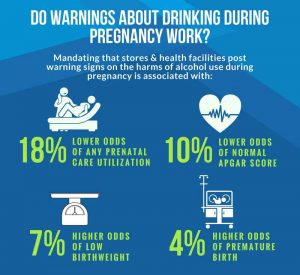Each year, one in five U.S. adults -- an estimated 53 million people -- experience harm because of someone else’s drinking, according to new research in the Journal of Studies on Alcohol and Drugs. Similar to how policymakers have addressed the effects of secondhand smoke over the last two decades, society needs to combat the secondhand effects of drinking, the authors state, calling alcohol’s harm to others “a significant public health issue.” According to the study -- an analysis of U.S. … [Read more...]
Recent Findings
Stricter Policies Lower the Risk of Being Hurt by Someone Who’s Been Drinking
In the US, adults under age forty living in states with more restrictive alcohol policies experience fewer aggression- and drink-driving-related harms from someone else’s drinking than those in states with weaker policies, a new NIAAA-supported study from the Alcohol Research Group, Public Health Institute, found. Results showed that for a 10-point increase in restrictiveness of an alcohol policy scale, including for instance alcohol availability, taxation and drink-driving laws, the odds of … [Read more...]
Alcohol policies aimed at stopping pregnant women from drinking cause worse birth outcomes, increase public health costs
State-level alcohol/drug pregnancy policies lead to increased low birthweight and preterm births, costing millions of dollars per year A new study finds that several state-level policies targeting alcohol and drug use during pregnancy lead to greater numbers of low birthweight (LBW) and preterm births (PTB), resulting in hundreds of millions of dollars more in public health spending each year. The study—a collaboration between the Alcohol Research Group (ARG), a program of the Public Health … [Read more...]
Dried Blood Spot Sampling Finds Return Rates Differ by Race/Ethnicity and Education
New research is first to assess the use of dried blood spot collection in a large national study In the first study to assess the feasibility of obtaining a mail-in, dried blood spot (DBS) sample from large national surveys in the U.S., results showed return rates differed across racial/ethnic groups and educational attainment. Specifically, Blacks and Latinos, and people with a high school education or below were less likely to return a DBS sample than Whites and those with a college education … [Read more...]
Self-administered Intervention Reduces Alcohol Consumption among Women who are Risky Drinkers
Study shows efficacy of digital tool as a harm reduction strategy A new study from ARG Scientist Madhabika Nayak and colleagues found that women who were risky drinkers and completed an electronic screening and brief intervention (e-SBI) program called DrinkWise significantly reduced their weekly alcohol use and heavy alcohol use at the six-month follow up, compared to those who did not complete the program. This is the first non-intensive (single session), self-administered e-SBI in English … [Read more...]
Some people with alcohol use disorder may be able to substitute cannabis for alcohol
New study links moderate cannabis use to persistent alcohol problems; finds no association for heavier or lighter use People with a lifetime alcohol use disorder (AUD) who used cannabis moderately had 2.83 times the number of drinks and experienced 6.82 times greater odds of alcohol-related harms than abstainers, according to a new study from ARG biostatistician and lead author Meenakshi Sabina Subbaraman and colleagues. Mid-level cannabis users also had an increased number of heavy … [Read more...]
Recent increases in alcohol consumption may be higher than previously reported
New study finds a more accurate way to measure per capita alcohol consumption that accounts for changes to how much alcohol is in beer, wine, and spirits The way we currently measure how much alcohol each person is consuming may be less accurate than previously thought, according to a new study from the Alcohol Research Group, a program of the Public Health Institute. The study authors offer a new way to determine per capita alcohol consumption that accounts for changes to the alcohol content … [Read more...]
Violent Crime Linked to Liquor Stores
A 10% increase in access to alcohol outlets was significantly associated with a 4.2% rise in violent crime in Baltimore, MD, a new study from ARG postdoctoral fellow Pamela Trangenstein found. Trangenstein and her team from Johns Hopkins also assessed whether the type of outlet made a difference, with results showing that greater access to off-site outlets was associated with a 4.4% increase in violent crime compared to 3% for on-site. This is the first ecologic study in the U.S. to use spatial … [Read more...]
Stricter policies & alcohol-related injuries
Stricter policies linked to lower rates of alcohol-related injuries International study finds government restrictions on drinking curbs injuries despite alcohol use rates and patterns Emeryville, CA (June 27, 2018): Countries with stricter alcohol policies had lower rates of alcohol-related injuries, regardless of individual consumption rates and drinking patterns, and country-level drinking patterns, a new study from the Alcohol Research Group (ARG), a program of the Public Health … [Read more...]
Policies Tied to Worse Birth Outcomes
Policies targeting alcohol use during pregnancy tied to worse birth outcomes New study suggests even “supportive” policies lead women to delay or avoid prenatal care Emeryville, CA (June 18, 2018) – A majority of state-level policies targeting women’s alcohol consumption during pregnancy—even policies designed to support pregnant women—lead to more adverse birth outcomes and less prenatal care utilization, according to a new study from ARG and Advancing New Standards in Reproductive Health … [Read more...]










